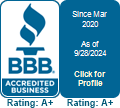
7 Surprising Ways You Waste Money Without Realizing It & How to Stop
Even if you think you are frugal and have your finances under control, you still may be wasting thousands of dollars every year on unnecessary expenses that you may be unaware of. It is easy to notice when you are blowing up your budget on extravagant extras and luxury items but it is much harder to notice smaller, under-the-radar money wasters. If you are not paying attention to these expenses it can start to add up.
Wondering where you are wasting your hard-earned cash? Check out these 10 top sneaky and surprising reasons you are wasting money so, you can get your finances back on track in time.
1. BANK FEES
According to the Consumer Financial Protection Bureau, Americans pay approximately $17 billion yearly in overdraft fees. Many banks routinely charge monthly maintenance fees, ATM fees, annual fees to keep using their credit cards and other bank costs which will cost you about $1000 on an average over a decade. Just remember that if your bank charges loads of fees, you should switch over to a consumer-friendly bank with features like a reimbursement if you use another bank’s ATM, no minimum balance requirements, no annual fees for your credit cards and free ATM use.
2. PAYING DEBT
You may not think much about taking a loan or using your credit cards to fund important things in your life. However, by incurring interest on a big balance you could be wasting a lot of money each month. If you have credit cards that have high- interest rates, you could end up spending hundreds to thousands of dollars over the cost of items you purchased.
You should avoid using credit cards unless you have a 0% card or you pay off the balance as quickly as possible, as late payments can jack up your interest rates. You can set up automatic payments if you have trouble getting payments out on time and you can contact the company if you make a one-time mistake. If you usually make payments on time they may be even willing to waive penalties.
When paying a debt you should figure out how much interest you are paying on each debt, and pay the debt that is charging you the most interest first.
3. GROCERY STORE PURCHASES
We are guilty of wasting food if we are not planning weekly meals. When we shop for food without a plan we are either buying big portions that cannot be finished or going overboard with groceries that end up going bad and getting thrown away. According to The National Resource Defence Council, the average American household throws away $1,350 to $2,275 worth of food every year. That is a huge amount of wasted money. You can stop wasting money on food and save tons of money every year by planning your household meals, making a shopping list, and freezing leftovers.
You should also not shop when you are hungry. This is a disaster as you are more susceptible to buying extra stuff that you do not need or will waste later. A good rule of thumb is to stay away from any kind of store if you are famished. You can also save money by shopping at discount grocery stores and using cash backups like Receipt Hog and Checkout 51.
4. IMPULSIVE BUYS
According to a survey, five out of six Americans admit that they buy items on impulse. When you purchase items on impulse you usually end up with things you do not need or want and so waste your money.
You can beat this habit with a little discipline, motivation and some smart strategies. You should follow the 30-Day Rule if you want to buy something unessential like the latest iPhone, clothes, video games, etc. If you are unsure if you should spend the money, wait a while like say 30 days before purchasing it. The chances are that if you wait that long, you would not want the product anymore, and will not waste money on something you do not need. Even a 24- hour wait may be enough to conquer the impulse to spend your hard-earned cash.
5. EATING OUT
You might not think that a $3 coffee or a $10 meal is a big deal. But, imagine what that figure will be if you take out time to add up all your yearly purchases like coffee, breakfast sandwich, or lunch or dinner. If you do not want to sacrifice having fun, just set up a spending limit and stick to it. An excellent tool for food spending is the cash envelope system. You should set up a weekly or monthly spending limit and use that cash so that you do not overspend.
6. CONVENIENCE FOODS
Buying convenience foods like pre-washed lettuce, vegetables, cut fruits, and prepared foods like prepacked snacks and TV dinners can cost more than their whole food counterparts. You can avoid wasting money by peeling your vegetables, making meals and snacks from scratch, or buying snacks in bulk and portion them yourself. You should also avoid the vending machine at work which offers processed, unhealthy food at higher prices. You should instead pack healthy snacks and meals to work which will help your wallet as well as your waistline.
7. BOTTLED WATER
It might not seem like it costs too much to buy a bottle or two of water on the go each day. But it can add up quickly and save you money in the long run. There are other cheaper alternatives. You can buy a sustainable, reusable bottle and a Brita filter to take your water everywhere. It is much cheaper than buying a 36-pack of bottled water and still purchasing water when you are out of the house.
FINAL THOUGHTS
Did any of these money wasters surprise you? How many sounded familiar? You must challenge yourself and your family to find ways that are not on the list (like saving on electricity, canceling subscriptions you do not use, using absorbent huck towels instead of paper towels, etc.).You will be surprised at how many of these little things can add up to one big amount you could be saving.


